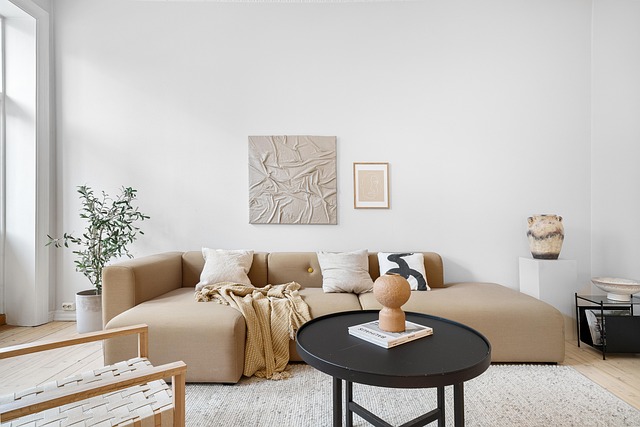To maintain peaceful shared spaces, roommates should establish clear rules through open communication, respecting personal boundaries, and equal responsibility for tasks like cleaning and noise management. Regular check-ins, active listening, and quick issue resolution are vital to preserve harmony, ensuring each person feels comfortable and their privacy is respected.
Navigating roommate relationships is key to cultivating peaceful shared spaces. Creating a harmonious environment requires setting clear house rules, fostering open communication, and respecting personal boundaries. Balancing individual needs with collective responsibilities ensures everyone feels at home. This guide explores practical strategies for each aspect, from establishing expectations to sharing chores, empowering you to thrive in your shared living arrangement.
- Setting Clear House Rules and Expectations
- Effective Communication for Harmony
- Respecting Personal Space and Privacy
- Shared Responsibilities for a Peaceful Home
Setting Clear House Rules and Expectations

Creating a set of clear house rules is essential for fostering a harmonious environment in any peaceful shared space. Before moving in together, roommates should come to an agreement on basic guidelines that promote respect, communication, and equal responsibility. These rules can cover various aspects, such as noise levels, cleaning duties, meal planning, and personal boundaries. For instance, establishing designated quiet hours ensures everyone gets adequate rest, while clearly defining cleaning responsibilities prevents workload imbalances.
Open communication is key to upholding these rules. Regularly discussing and reevaluating the house rules allows for flexibility and accommodates changing needs or preferences. Roommates should feel comfortable voicing concerns or suggesting modifications, fostering an inclusive environment where everyone contributes to creating a peaceful shared space.
Effective Communication for Harmony

Maintaining a peaceful shared space relies heavily on effective communication between roommates. Open and honest dialogue is key to resolving conflicts, understanding each other’s needs, and fostering an amicable environment. Regular check-ins, where each roommate has a chance to voice their concerns, desires, and expectations, can go a long way in preventing misunderstandings. Active listening—really hearing and comprehending what your roommate is saying—is also crucial for building mutual understanding.
In addition to scheduled conversations, addressing issues as they arise, rather than letting them fester, promotes harmony. Being respectful and considerate of each other’s personal spaces, routines, and preferences can significantly contribute to a pleasant living experience. Additionally, setting clear boundaries and expectations regarding noise levels, cleanliness, and shared resources helps avoid conflicts and ensures everyone feels heard and valued in the peaceful shared space.
Respecting Personal Space and Privacy

In any peaceful shared space, respecting personal space and privacy is paramount. Roommates need to acknowledge and value each other’s need for solitude and private moments. Setting clear boundaries can help create a harmonious environment where everyone feels comfortable. This involves creating designated areas for individual activities, like bedrooms or quiet study corners, and adhering to reasonable visiting hours.
Privacy isn’t just about physical space; it extends to personal belongings and conversations. Roommates should respect each other’s possessions, knock before entering shared areas, and be mindful of the level of detail shared in daily interactions. Cultivating open communication about privacy expectations from the outset can prevent misunderstandings and ensure everyone feels at ease within their shared living arrangement.
Shared Responsibilities for a Peaceful Home

Maintaining a peaceful shared space requires collective effort and clear communication among roommates. Every individual contributes to creating a harmonious environment by fulfilling their fair share of responsibilities. This includes keeping common areas clean, respecting noise levels, and ensuring everyone has adequate personal space. Roommates should openly discuss and agree on chores, such as cooking, cleaning, and grocery shopping, to avoid conflicts and promote equity.
By dividing tasks and setting boundaries, roommates can foster a peaceful atmosphere where everyone feels comfortable and valued. Open communication channels, like regular check-ins or a shared online group, enable discussions about needs, preferences, and any arising issues. This collaborative approach fosters a sense of community and ensures that the shared space remains a tranquil haven for all inhabitants.






